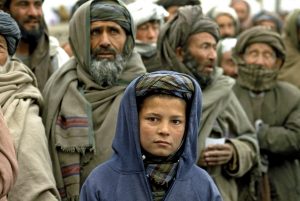
The Edmund Rice Centre for Justice & Community Education (ERC) has been documenting the fate of rejected asylum seekers returned to Afghanistan by the Australian government since 2002. Their latest report is the continuation of ERC’s determination to investigate Australia’s most recent deportations to Afghanistan by providing an overview of Afghanistan’s current security, political, and socio-economic situation, the drivers and trends of migration, and the returnees’ experience, compiled from both primary and secondary sources.
The preparation of the report included scholarly analysis, expert commentary, government and international organisations’ documents, officials’ statements, and newspaper reports as well as interviews with experts and practitioners working with national and international development agencies in Afghanistan. In addition to relying on a wide range of primary and secondary sources, a number of deported Afghans from Australia, Europe and other countries were interviewed in the context of returnees’ experience in order to broaden the focus of the report.
The report concludes that it would be impossible for Australian, European and other governments to guarantee the safety of Afghan returnees in this period of instability. Afghanistan is currently experiencing widespread conflict, intensifying violence, political instability, human rights abuses, lack of rule of law and good governance, economic hardships, and a serious refugee crisis. This has led to a situation whereby many Afghan people have been forced to leave their country and seek refuge in foreign nations in numbers that have not been seen since 2001. Between 2015 and 2016, tens of thousands of Afghans fled their homes in the hope of seeking asylum in Europe and other parts of the world. What is clear is that Afghans are leaving their country for a mixture of reasons, including political, security and economic, and it is not as simple as to claim that they are only leaving because of economic reasons.
The report raises concerns that Australian, European and other governments appear to be basing negative protection assessments for Afghan asylum seekers on primarily two premises. Firstly, many Afghans are considered to be fleeing their country due to economic vulnerability, rather than fleeing specific persecution. Secondly, some parts of Afghanistan are considered safe so the rejected Afghan asylum seekers can be returned to their country safely. However, given the deterioration of the security situation in Afghanistan combined with political instability, corruption, a weak judicial system and economic challenges, such assessments seem to be influenced by the domestic deterrence politics of Australian, European and other governments as a means of avoiding their international protection and human rights obligations.
The full report can be viewed on the website of the Edmund Rice Centre for Justice & Community Education.